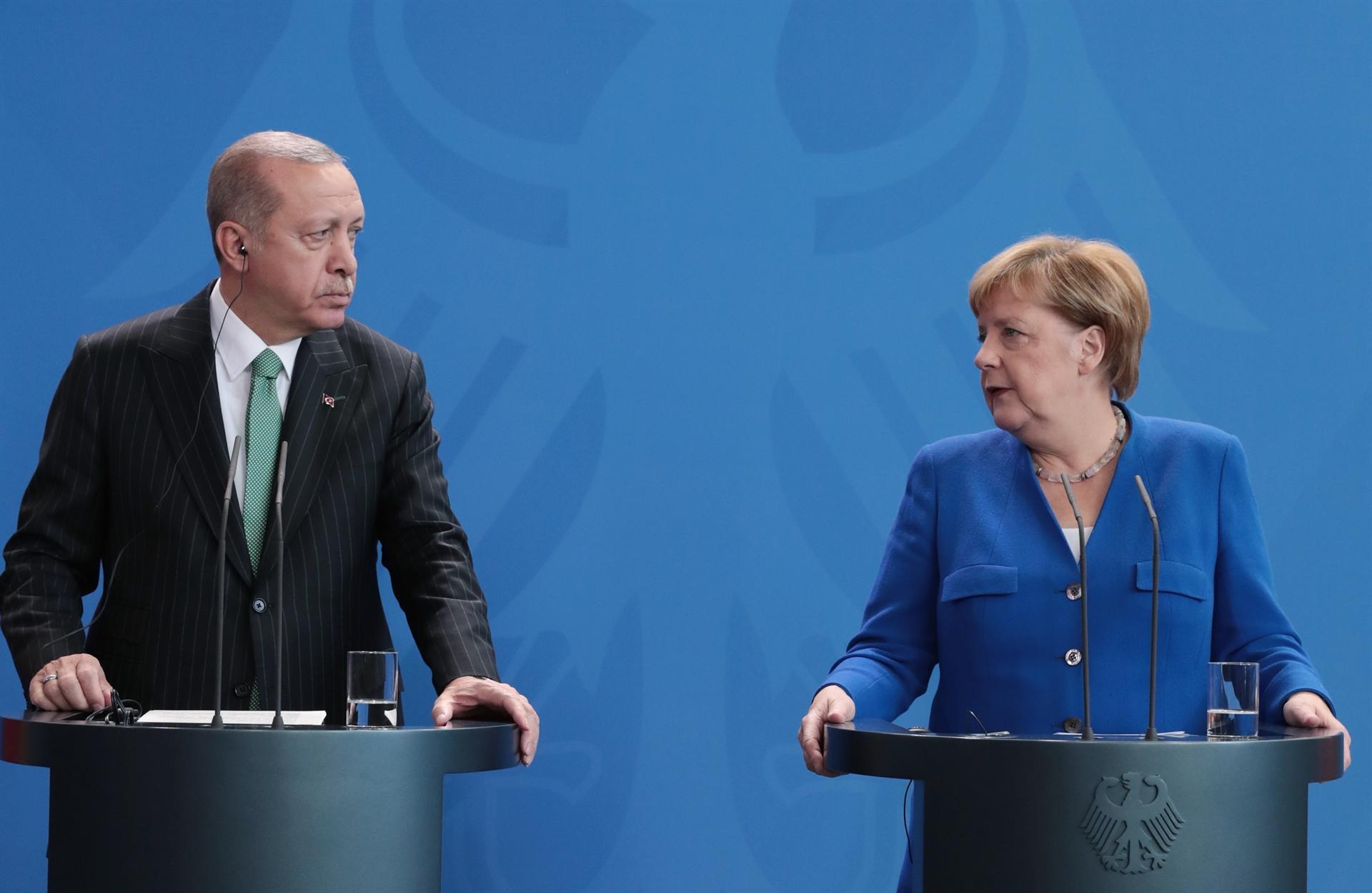
German Chancellor Angela Merkel and Turkish President Recep Tayyip Erdoğan both stressed the importance of the two NATO allies working together as they sought to improve relations during a joint news conference on Sept. 28 in Berlin.
Turkey and Germany “reached a consensus to revive cooperation mechanisms,” Erdoğan said, adding that Ankara plans to fulfill the remaining six criteria regarding the visa liberalization process with the EU “as soon as possible.”
Merkel said she and Erdoğan talked about bilateral economic cooperation, and stressed “Germany has an interest in an economically stable Turkey.”
“There is, on the one hand, a common strategic interest in good relations, and on Germany’s part too an interest in developing these relations,” she said. “But, on the other hand, on all questions of how a democratic, free and open society looks, there are also deep misunderstandings — not misunderstandings, differences.”
“I think this visit is significant because we can only clear up differences by talking to each other,” she said.
Erdoğan: Can Dündar a spy
The Turkish president said Turkey had requested the extradition of Can Dündar, a journalist who lives in exile in Germany after being convicted in Turkey of revealing state secrets. He accused the journalist of being a “spy.”
“At this moment this person is, according to Turkish law, a convict, a spy [who has] revealed state secrets,” Erdoğan said.
In May 2016, the 14th High Criminal Court in Istanbul convicted Dündar, the former editor-in-chief of Cumhuriyet daily, and the newspaper’s Ankara representative Erdem Gül following the publication of images purporting to show arms being transported to Syria in trucks belonging to Turkey’s National Intelligence Organization (MİT). Dündar was sentenced to five years and 10 months in prison for “acquiring and publishing state documents that were required to remain confidential.”
Merkel said she didn’t want to discuss specifics but it was “no secret” that Turkey and Germany differed in the case of Dündar, stressing that there was no pressure put on him not to attend the press conference. She said he “reached his own decision not to participate.”
Earlier, Dündar said he would not attend the press conference, claiming that “Erdoğan would have canceled the press conference using me as an excuse and would have avoided answering questions.”
Erdoğan said Germany has no right to criticize the Turkish judicial system, and similarly he has no right to criticize the German judiciary.
‘Extradite PKK militants, FETÖ supporters’
The Turkish president has also called on Berlin to extradite what he said were the thousands of PKK militants and hundreds of supporters of FETÖ residing in Germany. He also urged Germany to designate FETÖ as a terrorist organization.
“With the mutual trust we have for each other, I believe the handing over of [suspects] would make our work easier,” Erdoğan said, adding that their return “is important from a security point of view for the peace and welfare of our countries.”
Merkel noted that Germany considers the PKK a terrorist organization and prosecutes its members, saying that German authorities take Erdoğan’s information on FETÖ seriously “but we need more material - what we have is not enough for a similar status to the PKK.”
The trip is Erdoğan’s first formal state visit to Germany after he became president in 2014 and gained more executive powers under new presidential system following the elections in June.
Security in the German capital was tight, with streets, airspace and a waterway shut down during Erdoğan’s visit to the downtown government area.
The Turkish president is expected to wrap up his visit on Sept. 29 in the western Germany city of Cologne, opening a new mosque built by the Turkish-Islamic Union for Religious Affairs (DİTİB).
The Cologne-based DİTİB is one of the largest Islamic organizations in Germany. It was founded in 1984 as a branch of Turkey’s Presidency of Religious Affairs (Diyanet).